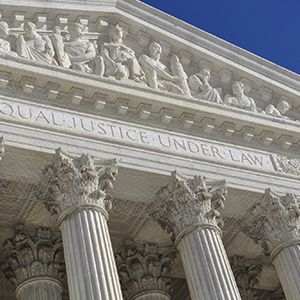You might remember the tabloid 1990s talk shows where DNA test results supposedly revealed if a guest was a child’s biological father. Sometimes he was happy he was, and sometimes he was happy he wasn’t.
Some men do fight to get visitation and custody rights, and others take legal action to avoid child support. But TV shows aside, the legal idea of paternity is more complex than the up-or-down results of a cheek-swab.
By law, you’re the presumed father of your wife’s a baby
In New York, by presumption, you are the father if you’re married to the mother when the baby is born. If a husband is unsure of the biological side of the situation, he usually must move fast to get DNA tests before the kid is one year old. After that, you’re usually a daddy for life.
But what if she lied or you figured it out a few years late? In New York courts, you’re almost always asking the wrong question if it’s anything other than “What is in the child’s best interest?” That’s someone who’s acted as the child’s father for a long time is unlikely to be relieved of his parental responsibilities.
A principle known as “estoppel” means that the court won’t let you change your claims about the truth just to suit your changing agenda. If you think you’re not the father, decide much sooner than later about taking action to sort out the truth.
If your girlfriend has a baby, fatherhood is not presumed
If you aren’t married when the child is born, the hospital ordinarily has you sign a form called Acknowledgment of Paternity when the child is born. You may want to think before signing that paper if you’re not certain you’re the father.
If you and the mother can’t settle your debate about signing the Acknowledgment of Paternity, one of you can go to court to get the tests needed to sort out the facts.
A baby has no voice
Courts keep a close eye on the children’s best interests, and are usually wise to do so. If the child’s legal father (whether biological or not) dies with inheritable assets or workers compensation or Social Security or insurance benefits, the child is owed those.
Even more importantly, a child is owed the emotional and financial support and relationship models two parents can provide. The child also may someday need vital, even life-saving information about the biological father’s medical history.



